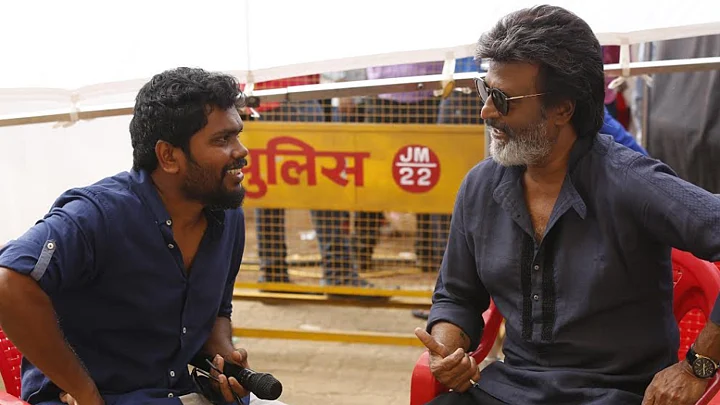Rajinikanth starrer Kaala is loaded with Pa Ranjith’s overtly pro-Dalit ideology. From the plate number of Rajini’s Thar to a politically charged narrative, the director has used the platform to tell a story of the underprivileged. In an interview with The Indian Express, Ranjith talks about his introduction to Ambedkar, what drew him to filmmaking and more.
Much has been spoken about Rajinikanth using Kaala to propel him headfirst into Tamil Nadu politics. But Ranjith denies any “overt connection”.
I will not say that this is a heroic movie but one portraying the life of urban poor. ‘Land is a right’ is the idea that Kaala pushes. Our urban policies furiously evict, displace and destroy the lives of slum dwellers overnight. And it tells them that there is no need for slum-dwellers in cities.Pa Ranjith
Speaking about his second collaboration with Rajinikanth after Kabali, he said,
Rajinikanth is very careful about everything, from props to dialogues. He will ask questions, and he expects you to explain the reasons behind your decisions. He believes that his work should reach the masses. So, he does not like films that are too ideological.Pa Ranjith
Addressing the Dalit symbolism in his films, Pa Ranjith said,
When a non-Dalit talks about caste or the oppressed, it is seen as revolutionary. When I do it, it will be interpreted as casteism due to my Dalit identity, which is equality. A movie is made with the help of so many people, irrespective of caste. I cannot work in a mainstream film industry by selecting Dalits alone. But since I am vocal about Dalit people, every act is interpreted through a caste lens.Pa Ranjith
Though, not marred by caste stigma growing up, the director was introduced to Ambedkar in Madras Fine Arts College where he enrolled to pursue a career in animation. “Dalit Murasu, a publication edited by Punitha Pandian, played a big role in making me read more and introduced me to Russian literature as well,” he says.
And it was Iranian filmmaker Majid Majidi’s Children of Heaven (1997) that moved him so much that he considered directing films as a career. “I was not able to read the subtitles as my English was very poor. But I remember weeping copiously. That was the first spark, it was when I started thinking like a director,” he says about watching the Iranian film.
Pa Ranjith speaks about his humble beginnings. His childhood home, a one-room structure, was built by then Chief Minister MG Ramachandran’s government.
My dad spent a little more money later and added a small verandah too. The house has been renovated now. But life hasn’t changed much. My parents don’t bother about my films. Neither do they want to come and stay with me in the city.Pa Ranjith
(Source: The Indian Express)
(At The Quint, we question everything. Play an active role in shaping our journalism by becoming a member today.)
